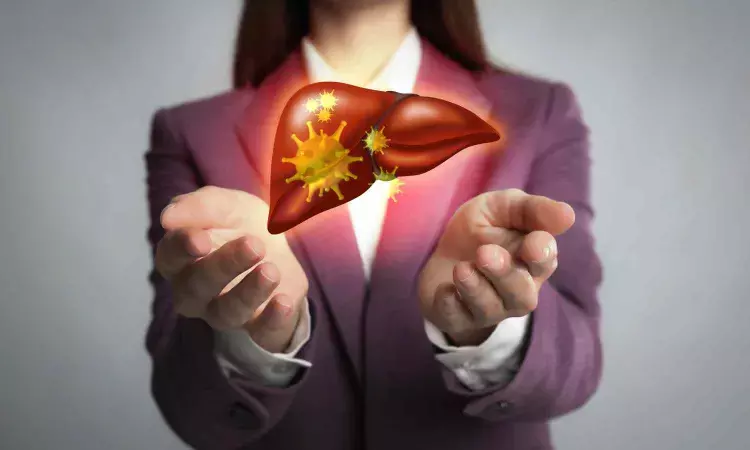- Home
- Medical news & Guidelines
- Anesthesiology
- Cardiology and CTVS
- Critical Care
- Dentistry
- Dermatology
- Diabetes and Endocrinology
- ENT
- Gastroenterology
- Medicine
- Nephrology
- Neurology
- Obstretics-Gynaecology
- Oncology
- Ophthalmology
- Orthopaedics
- Pediatrics-Neonatology
- Psychiatry
- Pulmonology
- Radiology
- Surgery
- Urology
- Laboratory Medicine
- Diet
- Nursing
- Paramedical
- Physiotherapy
- Health news
- Fact Check
- Bone Health Fact Check
- Brain Health Fact Check
- Cancer Related Fact Check
- Child Care Fact Check
- Dental and oral health fact check
- Diabetes and metabolic health fact check
- Diet and Nutrition Fact Check
- Eye and ENT Care Fact Check
- Fitness fact check
- Gut health fact check
- Heart health fact check
- Kidney health fact check
- Medical education fact check
- Men's health fact check
- Respiratory fact check
- Skin and hair care fact check
- Vaccine and Immunization fact check
- Women's health fact check
- AYUSH
- State News
- Andaman and Nicobar Islands
- Andhra Pradesh
- Arunachal Pradesh
- Assam
- Bihar
- Chandigarh
- Chattisgarh
- Dadra and Nagar Haveli
- Daman and Diu
- Delhi
- Goa
- Gujarat
- Haryana
- Himachal Pradesh
- Jammu & Kashmir
- Jharkhand
- Karnataka
- Kerala
- Ladakh
- Lakshadweep
- Madhya Pradesh
- Maharashtra
- Manipur
- Meghalaya
- Mizoram
- Nagaland
- Odisha
- Puducherry
- Punjab
- Rajasthan
- Sikkim
- Tamil Nadu
- Telangana
- Tripura
- Uttar Pradesh
- Uttrakhand
- West Bengal
- Medical Education
- Industry
Tranexamic acid may help control GI bleeding, prevent rebleeding in cirrhosis patients: Study

Tranexamic acid may help control GI bleeding, and prevent rebleeding in cirrhosis patients suggests a study published in the Hepatology.
Patients with Child-Turcotte-Pugh class B and C cirrhosis with upper gastrointestinal bleeding (UGIB) have systemic as well as localized (in the mucosa of the esophagus and stomach) fibrinolysis. The aim of this study was to evaluate the efficacy and safety of tranexamic acid in the treatment of acute UGIB in patients with cirrhosis. A total of 600 patients with advanced liver cirrhosis (Child-Turcotte-Pugh class B or C) presenting with UGIB were randomly allocated to either the tranexamic acid (n=300) or the placebo group (n=300).
The primary outcome measure was the proportion of patients developing 5-day treatment failure. Failure to control bleeding by day 5 was seen in 19/300 (6.3%) patients in the tranexamic acid group and 40/300 (13.3%) patients in the placebo group (p=0.006). Esophageal endoscopic variceal ligation (EVL) site as a source of failure to control bleeding by day 5 among patients undergoing first-time esophageal EVL (excluding patients with a previous post-EVL ulcer as a source of bleed) was seen in 11/222 (4.9%) patients in the tranexamic acid group and 27/225 (1212.0%) patients in the placebo group (p=0.005). However, 5-day and 6-week mortality was similar in the tranexamic acid and placebo groups.
Tranexamic acid significantly reduces the failure to control bleeding by day 5 and failure to prevent rebleeding after day 5 to 6 weeks in patients with advanced liver cirrhosis (Child-Turcotte-Pugh class B or C) presenting with UGIB, by preventing bleeding from the EVL site.
Reference:
Kumar, Manoj1; Venishetty, Shantan1; Jindal, Ankur1; Bihari, Chhagan2; Maiwall, Rakhi1; Vijayaraghavan, Rajan1; Saggere Muralikrishna, Shasthry1; Arora, Vinod1; Kumar, Guresh3; Sarin, Shiv K.1. Tranexamic acid in upper gastrointestinal bleed in patients with cirrhosis: A randomized controlled trial. Hepatology 80(2):p 376-388, August 2024. | DOI: 10.1097/HEP.0000000000000817
Dr. Shravani Dali has completed her BDS from Pravara institute of medical sciences, loni. Following which she extensively worked in the healthcare sector for 2+ years. She has been actively involved in writing blogs in field of health and wellness. Currently she is pursuing her Masters of public health-health administration from Tata institute of social sciences. She can be contacted at editorial@medicaldialogues.in.
Dr Kamal Kant Kohli-MBBS, DTCD- a chest specialist with more than 30 years of practice and a flair for writing clinical articles, Dr Kamal Kant Kohli joined Medical Dialogues as a Chief Editor of Medical News. Besides writing articles, as an editor, he proofreads and verifies all the medical content published on Medical Dialogues including those coming from journals, studies,medical conferences,guidelines etc. Email: drkohli@medicaldialogues.in. Contact no. 011-43720751


